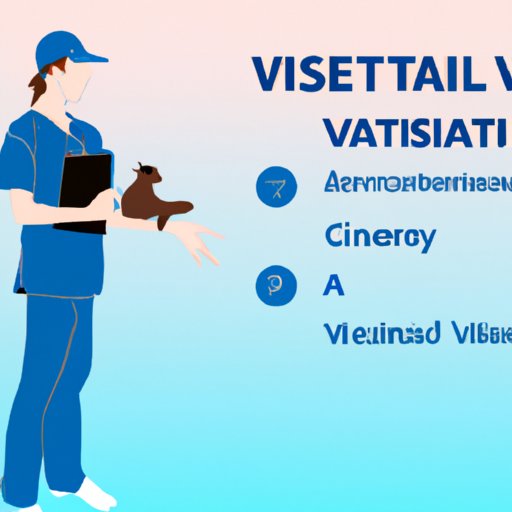Introduction
Veterinary science is the study of animals and their health, including medical care, nutrition, reproduction, and disease prevention. A veterinary science degree prepares graduates to pursue a range of career options in animal health and welfare. This article explores the various career opportunities available in veterinary science, from working in animal hospitals and veterinary clinics to researching animal health and disease prevention, becoming a veterinary nurse or technician, working as a veterinary pathologist, starting your own business in veterinary science, veterinary education and consulting, and working in animal welfare and conservation.

Working in Animal Hospitals and Veterinary Clinics
Veterinarians are responsible for providing medical care to animals in animal hospitals and veterinary clinics. They diagnose and treat illnesses and injuries, perform surgery, provide preventive care, and counsel pet owners on animal health and welfare. Veterinarians may also be involved in research projects and public health initiatives. The benefits of working in animal hospitals and veterinary clinics include the satisfaction of caring for animals and making a difference in their lives, the opportunity to develop strong relationships with clients, and the chance to work with a variety of species.
Researching Animal Health and Disease Prevention
Veterinary scientists are involved in researching the causes and prevention of animal diseases. They conduct research on animal nutrition, reproduction, genetics, and physiology, and develop new treatments and diagnostic tests. Research opportunities exist in both academic institutions and industry, and may involve laboratory experiments, field studies, or computer modeling. Benefits of researching animal health and disease prevention include the chance to advance scientific knowledge and improve animal welfare, the opportunity to collaborate with other scientists, and the satisfaction of contributing to the well-being of animals.
Becoming a Veterinary Nurse or Technician
Veterinary nurses and technicians assist veterinarians in providing medical care to animals. They take medical histories, administer medications, perform diagnostic tests, monitor patients during surgery, and provide post-operative care. They may also be involved in teaching, research, and public health initiatives. Benefits of becoming a veterinary nurse or technician include the satisfaction of providing care and comfort to animals, the opportunity to work with a variety of species, and the chance to develop strong relationships with clients.

Working as a Veterinary Pathologist
Veterinary pathologists are responsible for diagnosing and treating diseases in animals. They examine tissue samples and evaluate autopsy findings to determine the cause of death and make treatment recommendations. They may also be involved in research and public health initiatives. Benefits of working as a veterinary pathologist include the chance to advance scientific knowledge and improve animal welfare, the opportunity to collaborate with other scientists, and the satisfaction of contributing to the well-being of animals.

Starting Your Own Business in Veterinary Science
Those with a degree in veterinary science may choose to start their own business in the field. There are many business opportunities available, such as running an animal hospital, owning a pet boarding facility, or providing pet grooming or training services. Benefits of starting your own business in veterinary science include the satisfaction of making a difference in the lives of animals, the opportunity to be your own boss, and the chance to make a good income.
Veterinary Education and Consulting
Veterinary educators and consultants provide educational programs and advice to pet owners, veterinarians, and other animal professionals. They may teach classes, write articles and books, or consult on animal health and welfare issues. Benefits of veterinary education and consulting include the satisfaction of helping others learn about animal health and welfare, the opportunity to work with a variety of species, and the chance to develop strong relationships with clients.
Working in Animal Welfare and Conservation
Those with a degree in veterinary science may also choose to work in animal welfare and conservation. They may work in wildlife rehabilitation centers, research laboratories, or government agencies. Benefits of working in animal welfare and conservation include the satisfaction of making a difference in the lives of animals, the opportunity to work with a variety of species, and the chance to travel and experience different cultures.
Conclusion
A degree in veterinary science provides numerous career opportunities for those interested in animal health and welfare. These opportunities include working in animal hospitals and veterinary clinics, researching animal health and disease prevention, becoming a veterinary nurse or technician, working as a veterinary pathologist, starting your own business in veterinary science, veterinary education and consulting, and working in animal welfare and conservation. No matter which career path one chooses, a degree in veterinary science provides the opportunity to make a positive difference in the lives of animals.
(Note: Is this article not meeting your expectations? Do you have knowledge or insights to share? Unlock new opportunities and expand your reach by joining our authors team. Click Registration to join us and share your expertise with our readers.)
